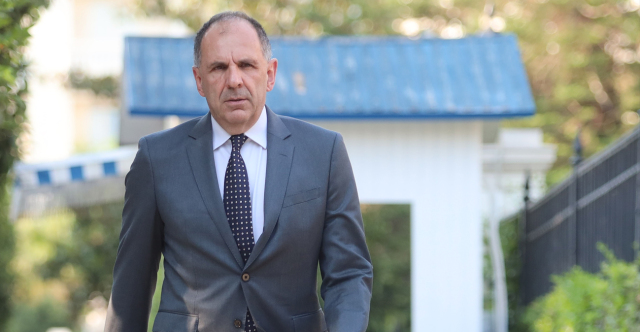Athens is swiftly trying to address at least two years of inactivity concerning Libya, especially after the Turkey-Libya Memorandum was introduced for discussion in the Tobruk parliament, causing significant concern in Greece.
Today, Foreign Minister Giorgios Gerapetritis is expected to initiate a phone conversation with the Speaker of the Tobruk Parliament, Akila Saleh. Meanwhile, the Greek Ambassador in Tripoli has arrived in Benghazi to engage with both Saleh and Saddam Haftar, the successor to Khalifa Haftar and a rising figure in Eastern Libya, who now leads the Libyan National Army established by his father.
The Foreign Minister aims to visit both Tripoli and Benghazi to restore relations with Libya, which remains in a state of crisis, facing constant tensions between the western and eastern governments amid stalled UN efforts to resolve political issues and hold elections for a legitimate government.
It is imperative for Greece to re-establish communication channels after a period of limited contact with both factions and to address critical concerns such as maritime border demarcation and migration, as influxes are increasingly directed towards Gavdos and Crete from the Libyan coast.
Reports indicate that the Greek Ambassador, N. Garilidis, will meet with Eastern Libyan authorities in Benghazi today. These authorities previously rejected the Turkish-Libyan Memorandum in 2019 amidst the country’s internal conflict, which was a reciprocal arrangement from the Tripoli government to secure military support against General Haftar’s attempt to take over Tripoli.
Both Eastern Libya and Tripoli have been largely overlooked by Greek diplomacy, leading to Greece being caught off guard by the introduction of the Turkish-Libyan Memorandum in Parliament. Should it be ratified, it would represent a significant setback for Greece, conferring internal “legitimacy” on Turkey and establishing a precedent for whatever government emerges from the ongoing political turmoil.
Moreover, Saddam Haftar has previously expressed interest in visiting Athens, a request that went unanswered, leading to perceptions that Athens is favoring the Tripoli government. This is surprising, as both the U.S. and key European nations like France and Italy have rebuilt relations with Eastern Libya and view Saddam Haftar as a potential negotiation partner.
In recent weeks, opportunities to communicate with Benghazi and General Haftar emerged, such as when Haftar’s other son, Al-Sadiq, received visas from the consulate for his family’s holiday in Greece, but Athens failed to seize these chances.
For the past year, Turkey has been actively working to strengthen its ties with Eastern Libya, aiming to play a pivotal role in resolving the political crisis and securing influence over any future government.
Both Haftar and Saleh have traveled to Ankara for high-level discussions, while Haftar’s other son, Belkas, oversees the reconstruction agency and is in ongoing talks with Turkey to attract companies for rebuilding Eastern Libya in light of the recent civil conflict and devastating floods in Derna.
According to Libya’s Fawasel Media, the approval of the Turkey-Libya Memorandum by the Tobruk Parliament is uncertain, given significant divisions among MPs, particularly in light of strong opposition linked to Turkey’s involvement in the Libyan crisis and Egypt’s unwavering support for Eastern Libya at political and diplomatic levels. Fortunately, no date has been set yet for parliamentary debate on the memorandum, enhancing the urgency for Greece to engage with Eastern Libyan authorities.
Ask me anything
Explore related questions

















